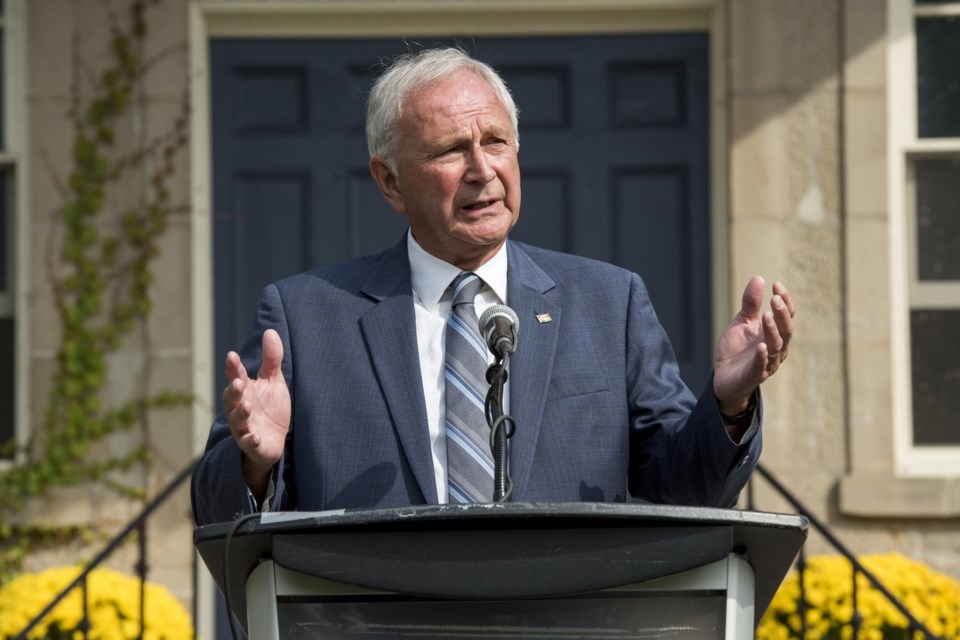FREDERICTON — As New Brunswick Progressive Conservative Leader Blaine Higgs started his campaign for re-election this week, a national survey was released Thursday showing he had the lowest approval rating of any premier in the country.
That same morning, Higgs openly mused about how he is perceived by the public, suggesting people have the wrong idea about who he really is.
"I really wish that people could know me outside of politics," he said immediately after announcing a general election would be held Oct. 21. He then spoke about meeting recently with a group in Mactaquac, N.B., where he heard someone say, "'You actually have a sense of humour.' I said, 'I've had that all my life.'"
For the past two years, Higgs has faced intense criticism from some caucus members who have openly described his leadership style as authoritarian and inflexible. Dissenters were demoted and have since left the caucus, allowing Higgs to focus on improving his public image.
Recent public opinion polls suggest the Conservatives, in office since 2018, are in a tight race with the Opposition Liberals, led by Susan Holt.
The 70-year-old Tory leader has hinted that a sunnier disposition might increase his popularity.
"I don't know whether I've got to do comedy hour or I've got to smile more," Higgs said Thursday. "My wife tells me, 'You know, if you would only smile more when you're being interviewed.' So I'm really working on that .... I don't want people to feel that all I think about is numbers."
At a campaign rally Thursday night in Quispamsis, N.B., Higgs repeated his pledge to smile more. Then he told a joke.
Higgs told the crowd how a Tory volunteer was canvassing voters during the 2014 election when a woman told her not to bother going next door because her neighbour had recently died.
“And this campaigner ... said 'I’m so sorry. Was she sick long?'" Higgs told the crowd. "And the lady just said, ‘Oh, don’t feel too bad. She was a Liberal.'”
Holt said the joke was in poor taste.
"I think that's really distasteful and demonstrates his poor judgment," she said. "The death of any New Brunswicker should never be a joke, and for him to make it partisan was really disgusting."
Green Party Leader David Coon agreed.
"To call it a joke would suggest it was funny, and there was nothing funny about it," he said. "It's a very dark comment."
The independent Angus Reid Institute released the results of a national survey that suggested Higgs, who is seeking a third term, had an approval rating of 30 per cent in New Brunswick — the lowest ranking among all of the premiers. The margin of error for the results from New Brunswick was plus or minus six percentage points.
According to 338Canada, a website that aggregates polling results, the Tories and the Liberals appear to be in a statistical dead heat in the latest seat projections. That suggests a minority government is likely if the numbers hold.
The data, however, also suggested the Liberals were leading in terms of projections for the popular vote, but 338Canada says the Tories had the greatest odds of winning the most seats.
In virtually every measure, the Green Party was a distant third, followed by the New Democrats and the People's Alliance of New Brunswick.
Higgs has shrugged off the survey results, saying "polls are what they are."
Jonathan Malloy, a political science professor at Carleton University in Ottawa, said it's not unusual for politicians to talk about softening their image. Voter surveys show most people make their decisions candidates based on their overall impressions not on policy positions, background or experience, he said.
"There's a phrase you sometimes hear: 'They want to have a beer with that individual,'" Malloy said, suggesting voters are more likely to support those who appear likable.
"(Politicians) want to appear kind of human and genuine and authentic because … that's usually the best way to connect with voters."
Malloy said most politicians develop these skills early on and keep working on them.
"I'm sure Mr. Higgs probably is getting some advice to change things up a bit, change his image. It happens to politicians in mid-career when what they're doing doesn't seem to be working."
This report by The Canadian Press was first published Sept. 20, 2024.
Hina Alam, The Canadian Press



